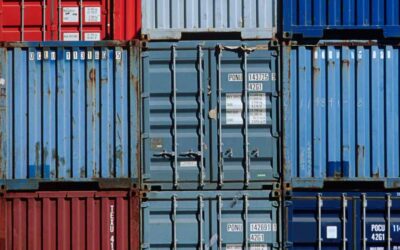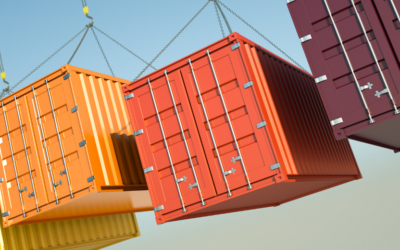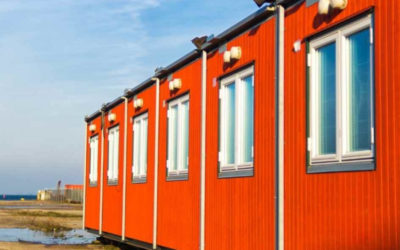Shipping containers have become indispensable in various industries, offering versatile and robust storage and transport solutions. From small business owners seeking efficient inventory management to home movers requiring temporary storage, and logistics managers needing scalable options, shipping containers are the unsung heroes of modern logistics. However, a crucial question arises: when is it better to buy a shipping container, and when is it more advantageous to hire one? This guide will delve into the factors you need to consider to make an informed decision.
1. Introduction
Shipping containers are more than just steel boxes on docks; they’re versatile assets used for storage, transport, and even creative spaces. But the dilemma remains: should you buy or hire a shipping container? Understanding the nuances can significantly impact your decision, especially considering the unique Australian context.
When it comes to sourcing shipping containers in Australia, OZBOX stands out as a premier provider with a vast selection of new and used containers for both hire and sale. OZBOX caters to various needs and budgets, offering options from standard storage containers to specialised units such as refrigerated, open-top, and high-cube containers. Whether you’re looking for a long-term purchase for your business or a short-term rental for a specific project, OZBOX promises the reliability, flexibility, and affordability essential for seamless operations. The team at OZBOX prides itself on exceptional customer service and a commitment to delivering quality solutions tailored to your unique requirements.
2. Buying vs. Hiring: Cost Analysis
Buying
When you purchase a shipping container, you gain long-term ownership and the freedom to customise it as you see fit. However, this comes with a hefty upfront cost. For instance, the average price for a new 20ft container ranges from $3,000 to $4,000 AUD. You also need to consider ongoing maintenance and potential depreciation.
Buying is ideal for businesses with continuous storage needs, DIY enthusiasts planning to modify the container, and individuals seeking a permanent solution for their property.
Hiring
On the flip side, hiring a shipping container involves lower upfront costs and flexible rental periods. This option is less burdensome in terms of maintenance, as the hiring company often takes care of it. However, you don’t own the container, which limits your ability to customise it fully. Over time, ongoing rental fees could exceed the cost of purchasing one.
Hiring is best for short-term storage needs, such as during renovations or relocations, for those unsure of their long-term space requirements, and for those who lack space for a permanent container placement.
3. Flexibility and Scalability
Small Businesses
For small businesses, flexibility and scalability are crucial. Hiring a container offers the advantage of adjusting storage capacity as your business grows. You can easily scale up by renting additional containers without the burden of long-term commitments.
Home Movers
Home movers often face fluctuating storage needs. Hiring a container provides the flexibility to use it only when needed, making it a cost-effective solution for temporary storage during moves.
Logistics Managers
Logistics managers require scalable solutions to meet varying demands. Hiring allows for quick adjustments, accommodating peak seasons without significant capital investment. However, owning containers can be beneficial for long-term, consistent needs.
4. Timing and Urgency
Immediate Needs
If you need a shipping container urgently, hiring is often the quickest solution. Rental services can provide immediate access, which is crucial for emergency storage or quick relocations.
Planning Ahead
For planned requirements, buying a container might be more economical in the long run. However, consider lead times for delivery and setup. Planning ahead allows you to weigh the costs and benefits thoroughly.
5. Quality and Condition
Buying
When you purchase a container, you have full control over its quality and condition. This is particularly important for long-term use. You can inspect and select a container that meets your standards, ensuring the safety and integrity of your goods.
Hiring
Rental containers are generally well-maintained, but you might not have the same level of control over their condition. Ensure you select a reputable hiring company like OZBOX to avoid issues with the quality and safety of the container.
6. Environmental and Regulatory Considerations
Regulations
Before placing a container on your property, check local council regulations and permits. These rules can vary significantly across Australia, affecting where and how you can use a container.
Environmental Impact
Consider the environmental impact of your choice. Hiring containers can be more sustainable as it promotes reuse, reducing the need for new production. However, owning a container allows you to implement eco-friendly modifications, such as insulation and solar panels.
Conclusion
Deciding whether to buy or hire a shipping container depends on your specific needs, budget, and long-term plans. Let’s summarise the key points:
- Buying offers long-term ownership, customisation freedom, and potential resale value but comes with high upfront costs and maintenance responsibilities.
- Hiring provides lower upfront costs, flexible rental terms, and less maintenance but limits customisation and can become expensive over time.
Assess your requirements carefully. For instance, small businesses might benefit from the flexibility of hiring, while those with ongoing needs could find buying more economical. Home movers may prefer the convenience of short-term hires, and logistics managers should consider the scalability of rental options.
Ultimately, the best choice depends on your unique situation. If you’re still unsure, starting with a short-term hire could help gauge your long-term needs without significant commitment.
Remember, companies like OZBOX offer a variety of sale and hire options tailored to Australian conditions. Whether you choose to buy or hire, a little planning goes a long way in finding the perfect shipping container solution for your needs.









